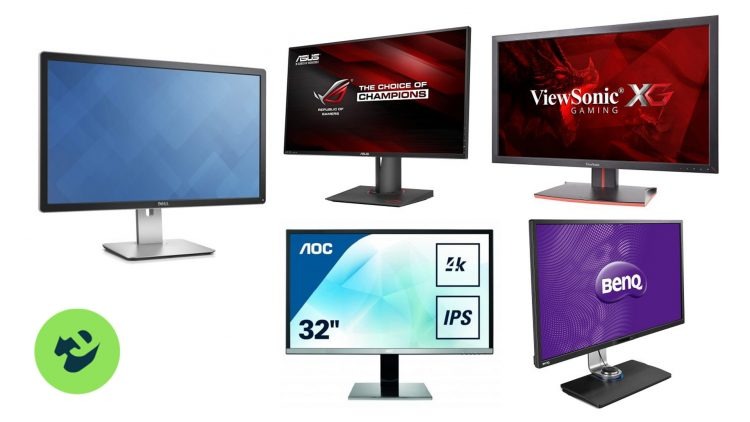An LCD (Liquid Crystal Display) monitor is a type of flat-panel display that uses liquid crystals to produce images. It has become the standard display technology for various devices, including computer monitors, televisions, and smartphones. LCD monitors offer several advantages over their predecessors, such as CRT (Cathode Ray Tube) monitors, including slim profiles, energy efficiency, and better image quality.
An LCD (Liquid Crystal Display) monitor is a type of flat-panel display that uses liquid crystals to produce images. It has become the standard display technology for various devices, including computer monitors, televisions, and smartphones. LCD monitors offer several advantages over their predecessors, such as CRT (Cathode Ray Tube) monitors, including slim profiles, energy efficiency, and better image quality.

LCD Monitor Components and Terminology
To understand how an LCD monitor works, it's important to familiarize yourself with its key components and associated terminology.
1. Display Panel: The display panel is the heart of an LCD monitor. It consists of thousands or millions of tiny liquid crystals sandwiched between two layers of glass. These liquid crystals can change their orientation in response to an electric current, allowing light to pass through or blocking it, thus creating the desired image.
2. Backlighting: LCD monitors require a light source to illuminate the liquid crystals and make the images visible. This is achieved through backlighting, which is usually provided by fluorescent lamps or more commonly by LED (Light Emitting Diode) technology. LED backlighting offers advantages such as improved energy efficiency, better color reproduction, and thinner designs.
3. Resolution: Resolution refers to the number of pixels displayed on the screen. It determines the level of detail and sharpness of the images. Higher resolutions, such as Full HD (1920x1080 pixels) or 4K Ultra HD (3840x2160 pixels), provide more pixels, resulting in clearer and more detailed visuals.
4. Aspect Ratio: Aspect ratio is the proportional relationship between the width and height of the screen. Common aspect ratios include 16:9 (widescreen) and 4:3 (standard). Widescreen aspect ratios have become more popular due to their compatibility with HD content and the ability to display multiple windows side by side.
5. Refresh Rate: The refresh rate refers to the number of times the monitor updates the image displayed per second. It is measured in Hertz (Hz). A higher refresh rate reduces motion blur and provides smoother visuals, especially in fast-paced content like gaming or action movies.
6. Response Time: Response time is the time it takes for a pixel to transition from one state to another, typically measured in milliseconds (ms). Lower response times result in less motion blur and ghosting, making them ideal for fast-moving content. For gaming and fast-paced applications, a low response time is highly desirable.
In summary, an LCD monitor comprises a display panel that utilizes liquid crystals, backlighting to provide illumination, and several important parameters to consider, such as resolution, aspect ratio, refresh rate, and response time.
Conclusion
In summary, understanding the basics of an LCD monitor, including its components and terminology, is crucial for selecting the right display that caters to your requirements. Consider the display panel, backlighting, resolution, aspect ratio, refresh rate, and response time to make an informed decision and elevate your visual experience. Don't settle for less; invest in a high-quality LCD monitor that will enhance your productivity, entertainment, and overall satisfaction.
Contact us now to get a free quote!

LCD
Related Readings:
What is LCD?
What is TFT-LCD TTL interface?
4 Types Of Flat Panel Displays
LCD vs Plasma: Which is Better?
Construction and Working Principle of LCD Display
What is EDID? Extended Display Identification Data
OLED vs LED LCD: Which is the best display technology?

